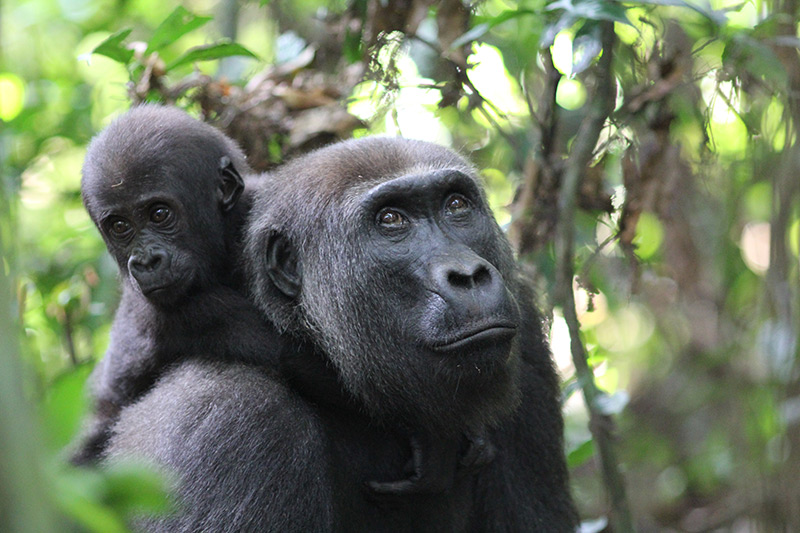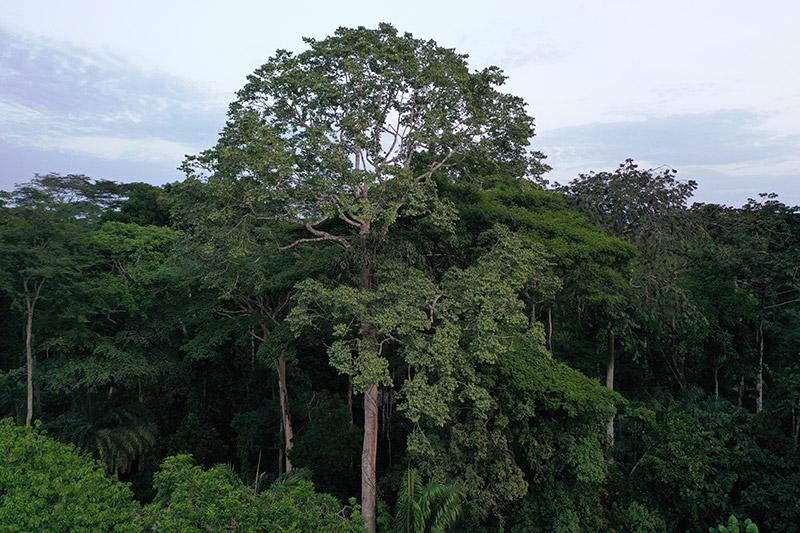SAVING GORILLAS
Goualougo Triangle Ape Project
PROTECTING GORILLAS
A Future for Gorillas
Established in 1998, the Goualougo Triangle Ape Project was founded with the aim of preserving wildlife in the Congo Basin by studying the apes, the ecosystems, and the forces that threaten their survival. In 2014, the study area expanded to include the Djeke Triangle region outside the Nouabale-Ndoke National Park – resulting in the Goualougo Triangle Ape Project.
The program is currently monitoring specific aspects of ape coexistence, forest ecology and change, and ape-human health risks. Local communities and indigenous people assist in directly addressing the challenges that impact great ape survival in this region.
ABOUT THE PROJECT
The goal of the Goualougo Triangle Ape Project is to enhance our knowledge of gorillas and chimpanzees residing in central Africa through long-term population monitoring and improving their conservation status. This is achieved by documenting the behavior and ecology of species populations and monitoring the densities of gorillas in the study area. The project also evaluates the effect of unnatural disturbances, such as timber exploitation and associated activities, on apes residing in the study area, which remains in an active logging concession.

Population Under Threat
Western lowland gorilla populations have undergone a dramatic decline in recent years and the species is currently listed as critically endangered. Commercial hunting for bushmeat, loss of habitat through increased logging activities, and diseases such as Ebola hemorrhagic fever have all had an impact on the population, persisting throughout the region.
Photo credit Goualougo Triangle Ape Project

Increasing Habitat Protection
The 100 km2 Djeke Triangle is in the Kabo logging concession, located just outside the Nouabale-Ndoki National Park. In the early 2000s, the local logging company began adhering to Forest Stewardship Council (FSC) certification for the concession, and in 2005 the area was designated a “conservation set-aside area,” which spared the region from timber exploitation. The Goualougo Triangle Ape Project is now assisting in compiling information to lobby for the increased protection of this gorilla-rich area including adding it to the national park.
Photo credit Goualougo Triangle Ape Project
Community Based Conservation
Saving great apes and their habitats does not just involve implementing informed forestry practices, safe tourism, and conscientious research. It also requires valuing local human cultures and land-use rights.
A strong relationship with the local village populations of Bomassa, Bon Coin and Bayanga is critical to support the research being done in the area. The employment of local Ba’Aka people provides a viable alternative to unsustainable hunting, and aids in addressing current gender and ethnic imbalances in economic opportunities. 81 people from the local villages are employed to implement the goals of the project, providing a daily connection to the forests and apes. Strengthening these activities allows the indigenous peoples to feel empowered to address the enduring challenges facing conservation efforts in the region.
WHAT YOU CAN DO
Recycling Cell Phones Helps Save Gorillas!
Recycling electronics helps reduce the demand for Coltan – an ore used to extend battery life in phones and other handheld devices. Coltan mines in the Democratic Republic of the Congo destroy habitat critical to endangered species, including the western lowland gorilla.
How Can You Help?
Bring your used handheld electronics to drop-boxes located at both zoo entrances. We accept: cell phones, MP3 players, tablets, adapters, chargers, and the accessories that come with them.
Woodland Park Zoo is proud to partner with ECO-CELL to recycle e-waste responsibly. In 2018, we collected and recycled 270lbs of electronics donated by visitors like you!
MORE WAYS TO HELP